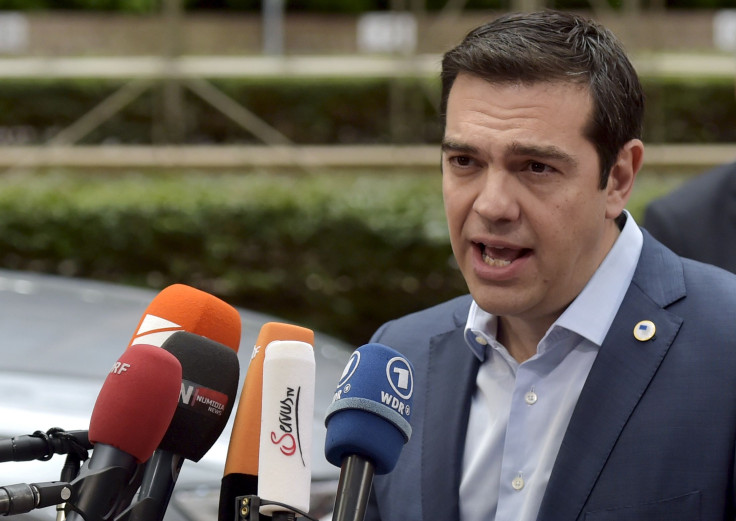NATO Praises Greece Bailout Deal, Says Economic Stability Key To Europe's Security

The top official in the NATO alliance offered support this week for the bailout deal Greece reached with its European creditors. The agreement, reached after weeks of tough negotiations, prevented a costly Greek exit, or “Grexit,” from the Eurozone, but may ultimately cost Greece Prime Minister Alexis Tsipras his job.
Jens Stoltenberg, NATO’s Secretary-General, praised the deal as crucial to the overall stability of Europe and the NATO alliance, which counts Greece as a member. His comments came at a time of diplomatic turmoil in Eastern Europe, where NATO and Russia have traded public barbs while building up their respective military presences.
“I welcome the agreement because I think that it is important for the Greek economy but also for the whole of Europe and NATO,” Stoltenberg said, according to Agence France-Presse. “The stability, economic prosperity [of Greece] is important for many reasons, but of course also important for the security of all our countries.”
Tsipras won office through a campaign that promised to save Greece’s economy without submitting to crippling austerity measures. But Tsipras agreed Monday to a harsh austerity plan, including a higher sales tax and sweeping pension cuts, in exchange for 86 billion euros, or about $96 billion over a three-year period.
Without the bailout deal, Greece risked defaulting on its loan obligations and crashing out of the euro, with potentially disastrous consequences for both Greece and the European Union. But the newly-imposed austerity measures were more punitive than those listed in a softer deal Greece’s citizenry rejected in a nationwide referendum earlier this month, the Wall Street Journal reported. The agreement likely will face opposition from elements within Tspiras’ left-wing Syriza party, which would force Tsipras to seek allies in opposition groups to pass it through Greece’s legislature, Reuters reported.
Stoltenberg (#NATO): I expect Greece to continue spending 2% of its GDP on defence. http://t.co/DnkrCctXE2 pic.twitter.com/b8csR1nU2S
— Jason (@Velt_NL) July 6, 2015Despite Greece’s impending political battle, Stoltenberg said he expected Greece to continue with its commitments to NATO, specifically in regard to defense spending.
“It’s an ally that has spent more than 2 percent of [gross domestic product] on defense for several years and I’m absolutely confident that Greece will continue to be a staunch and committed ally,” Stoltenberg said.
© Copyright IBTimes 2025. All rights reserved.






















